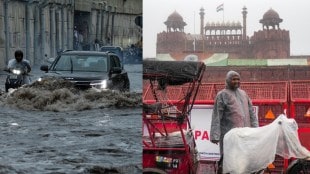Water-borne diseases are common in monsoon. Dr Rakesh Gupta, senior consultant, internal medicine, Indraprastha Apollo Hospitals, New Delhi, tells us how to prevent them. “During monsoon, water-borne diseases tend to be more prevalent due to increased contamination of water sources. However, there are several preventive measures that can help minimise the risk of contracting these diseases.”
Safe drinking water: The primary step is to ensure safe water supply. It is advisable to drink boiled or filtered water. If these options are not available, commercially packaged water can be used.
Proper hygiene: Maintaining personal hygiene is crucial. Wash your hands frequently with soap and clean water, especially before handling or eating food, or after using the restroom.
Water storage: Store water in clean, covered containers to prevent contamination from insects, dirt or other pollutants. Regularly clean and disinfect water storage vessels to ensure the water remains safe.
Food safety: Pay attention to food hygiene practices. Avoid eating raw or uncooked food items, particularly seafood and vegetables that might have been washed with contaminated water.
Avoid street food: Street food may be tempting, but it is advisable to be cautious during the monsoon season. The water used for food preparation might not be safe, leading to potential contamination and increased risk of water-borne diseases.
What are the skin ailments that can happen during monsoon?
During the monsoon season, certain skin ailments are more common due to increased humidity, dampness and exposure to water. Some of the skin ailments that can occur during this time are:
Fungal infections: The humid and damp conditions during the monsoon create an ideal environment for fungal growth. Skin fungal infections like ringworm, athlete’s foot and fungal nail infections are prevalent.
Also read: Sweetener in Coca-Cola’s diet soda is ‘possible’ cancer-causing agent; here’s what you need to know
Acne and breakouts: Increased humidity can lead to excessive oil production on the skin, resulting in clogged pores and acne breakouts. The combination of sweat, dirt and bacteria can exacerbate existing acne or trigger new ones.
Eczema and dermatitis: People with pre-existing skin conditions like eczema or dermatitis may experience flare-ups during the monsoon season.
Prickly heat: Also known as heat rash or miliaria, prickly heat occurs when sweat gets trapped under the skin due to blocked sweat ducts. It leads to tiny, itchy bumps and a prickling sensation on the skin, particularly in areas prone to sweating.
Tinea versicolour: This fungal infection appears as discoloured patches on the skin, commonly on the chest, back and shoulders.
What are the foods to avoid in monsoon?
During the monsoon season, it is advisable to be cautious about certain foods to reduce the risk of foodborne illnesses and maintain good health. Here are some foods to avoid or consume with caution during the monsoon:
Leafy vegetables: Leafy greens like spinach, cabbage and lettuce are prone to contamination during the monsoon due to increased moisture. They can harbour dirt, bacteria and parasites; so, it’s best to consume them after thorough washing and cooking.
Street food: Street food, such as chaat, pakoras and samosas may be tempting, but it is wise to exercise caution during the monsoon. The water used in their preparation may not be safe, and there is a higher risk of contamination.
Raw or cut fruits: Fruits that are consumed raw or cut, like watermelon, muskmelon and cucumber, should be washed thoroughly before consumption. The outer skin can carry dirt and germs.
Seafood: Seafood, including fish, prawns and crabs, should be consumed with caution during monsoon. Fish and shellfish tend to spoil quickly in humid weather, increasing the risk of food poisoning. Ensure that seafood is fresh, properly cooked and got from reliable sources.
Dairy products: Dairy products like milk, yogurt and cheese can spoil quickly in high humidity. Check the freshness and quality of dairy products before consumption. Avoid consuming dairy products that have been left unrefrigerated for an extended period.
Do we need extra precautions in any manner?
Yes, during monsoon, it is advisable to take some extra precautions to stay healthy and prevent various ailments. Here are a few additional precautions to consider:
Foot care: Keep your feet clean and dry, as they are susceptible to fungal infections during monsoon. Use antifungal powders or creams, wear clean and dry socks, and opt for open-toe footwear to allow proper ventilation.
Mosquito protection: Mosquito-borne diseases like dengue and malaria are more common during the monsoon. Use mosquito repellents, wear long-sleeved clothing and sleep under bed nets to protect yourself from mosquito bites.
Avoid walking in stagnant water: Steer clear of walking or wading through stagnant water, as it may contain disease-causing bacteria, parasites or sharp objects. Stagnant water is also a breeding ground for mosquitoes.
Adequate ventilation: Ensure proper ventilation in your living spaces to reduce moisture and prevent the growth of molds and fungi. Use exhaust fans, keep windows open when possible and allow sunlight to enter the rooms.









